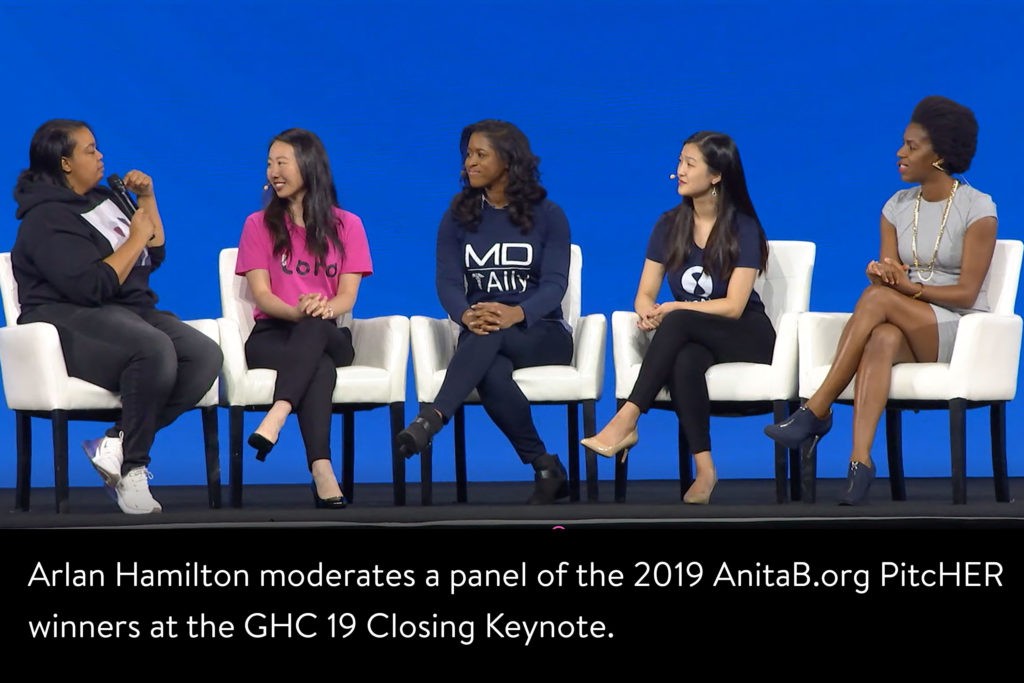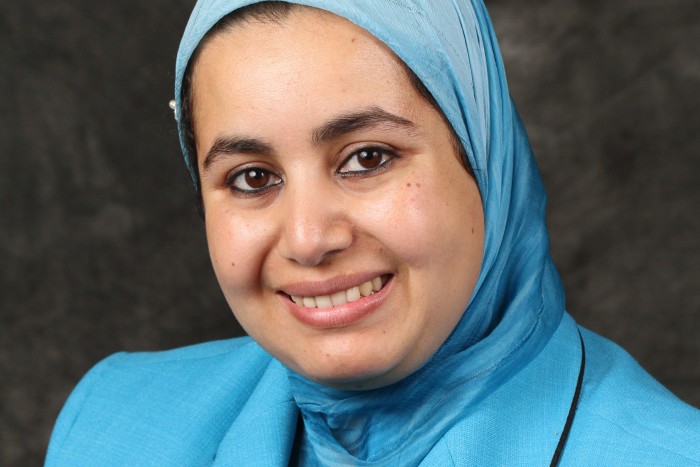Kaoutar El Maghraoui, GHC Program Co-Chair

Kaoutar El Maghraoui, GHC Program Co-Chair
Today, many headlines coming out of the Middle East may suggest that this region is defined by one thing: ongoing violence and political instability. In fact, it might be considered the last place to foster a budding community for women in technology.
That’s a stigma that Dr. Kaoutar El Maghraoui, program co-chair for the Grace Hopper Celebration, is committed to changing. The research scientist at the IBM T.J. Watson Research Center in New York is passionate about promoting women in technology, especially in Middle Eastern countries.
“In Arab countries, women are encouraged to go into engineering disciplines, because it’s empowering and interesting,” says Kaoutar, who is co-chair of the Arab Women in Computing (ArabWIC), an AnitaB.org Systers’ community. “It’s a point of great pride for a woman to be in a computing discipline.”
Kaoutar explains that there is great energy and momentum among technical women in the Arab world and the numbers of women in computing disciplines in these countries is almost identical to men — if not more in certain cases. She adds that “ArabWIC is a dynamic community that was founded by Professor Sana Odeh of New York University with the goals of supporting, inspiring, retaining and encouraging collaboration among Arab Women in computing.”
Kaoutar, a native Moroccan, notes that this same attitude of collaboration and empowerment would go a long way toward achieving gender equality in the United States and around the world.
“In the U.S., there’s a misconception that computer science disciplines are only for boys, and that’s a notion supported by the media here,” Kaoutar says. “If you look at children’s programming, you rarely see girl characters who are into computers, but rather they’re into singing, dancing and fashion. The culture doesn’t encourage girls to pursue engineering.”
To help reverse this mindset, Kaoutar has thrown herself into activities that encourage and support young girls and women to pursue careers in computing. She mentors eighth graders from area schools to expose them to various technologies like LEGO robotics, programming and web design.
“I want to excite young girls about the fields of computing,” Kaoutar says. “We show them applications for computer science like robots built to clean hospitals and deliver medicine based on programming concepts.”
Kaoutar also supports fellow female IBMers, helping them navigate their way through the humongous corporation and succeed in their careers.
As a GHC program co-chair, Kaoutar has been dedicated to creating a balanced program that caters to the different needs of every attendee. She emphasizes the need to look at the GHC program through a diverse lens, and deliver content that reaches students, early professionals, mid-career professionals as well as seniors.
She’s also passionate about spreading the excitement of GHC to other regions of the world.
“It’s amazing to see the female-led startup companies and innovative technologies being developed in countries like Palestine and Libya,” she says. “These are women who may not have electricity, but they’re still organizing vocal communities for women in tech. They’re empowered, not discouraged, by their environment and the difficult conditions they live in.”

